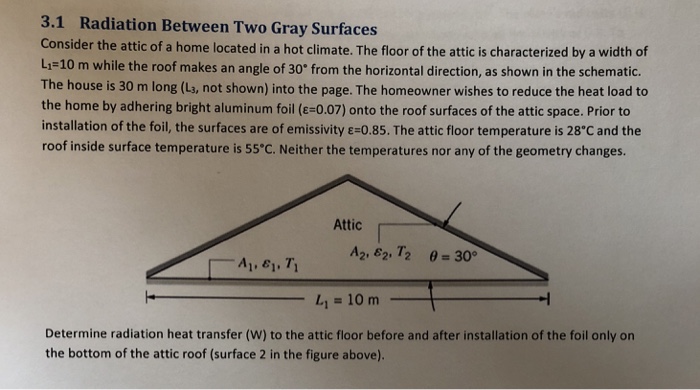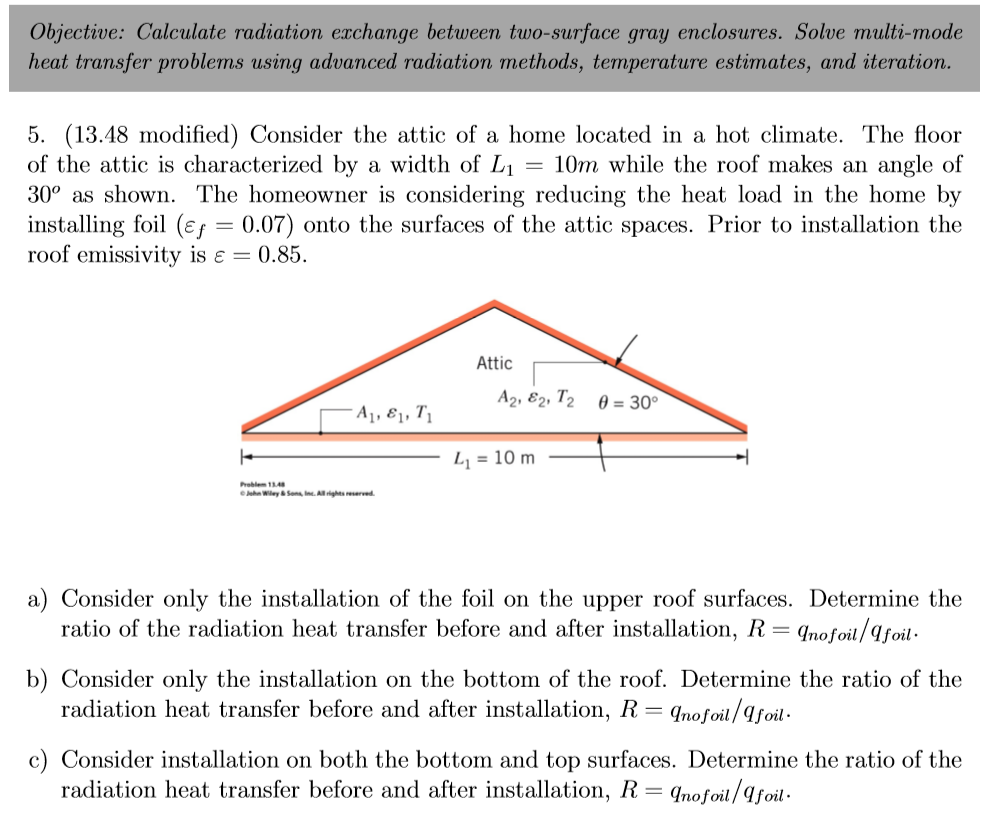The elementary areas are at a distance r apart and the normal to these areas make angles 0 1 and 0 2 with the line joining them.
Radiation between two gray surfaces attic.
The house is 30 m long ls not shown into the page.
Diffuse gray surfaces the analysis of radiation transfer in enclosures consisting of black surfaces is relatively easy as we have seen but most enclosures encountered in practice involve nonblack surfaces which allow multiple reflections to occur.
Heat transfer between surfaces based on two assumptions.
The floor of the attic is characterized by a width of l1 10 m while the roof makes an angle of 30 from the horizontal direction as shown in the schematic.
Radiation analysis of such enclosures becomes very complicated unless some simplifying assumptions are made.
Introduce the topic of radiation transfer in a participating medium that absorbs emits and scatters radiation and describe the formulation and application of the radiative transport equation.
Consider the two infinite gray surfaces shown in figure 19 5 we suppose that the surfaces are thick enough so that no radiation transmitted so consider a photon emitted from surface 1 remembering that the reflectance.
In this article we will discuss about the mechanism of heat exchange between two or more surfaces.
3 1 radiation between two gray surfaces consider the attic of a home located in a hot climate.
Surfaces form ideal closed enclosure and are separated by nonparcipating media.
Consider heat exchange between elementary areas da 1 and da 2 of two black radiating bodies having areas a 1 and a 2 respectively.










